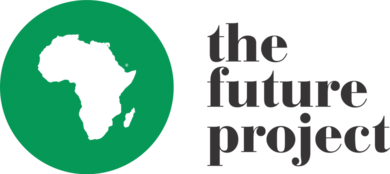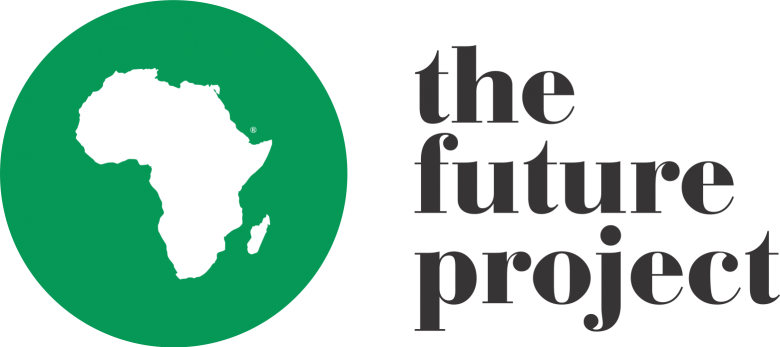Damini ‘Burna Boy’ Ogulu, Debo Ogundoyin, Kenneth Udekwe, Israel Adesanya and the #NigeriasMetooMovement; Khadijah Adamu, Damilola Marcus and Kiki Mordi are honorees for #TFAA2019 Young Person of the Year

Celebrating their excellence and distinction regardless of barriers in tribe and religious differences, Damini ‘Burna Boy’ Ogulu, Debo Ogundoyin, Kenneth Udekwe, Israel Adesanya and initiations of various social change movement, NigeriasMetooMovement; Khadijah Adamu, Damilola Marcus and Kiki Mordi, have been nominated for the ‘Young Person of the Year’ category of the continent’s biggest youth awards, The Future Awards Africa (TFAA).
The Central Working Committee (CWC) describes the category as an exceptional award bestowed to any young person who has become a force for change, an individual who has demonstrated creativity, intuition, innovation, initiative and always ready to lead change in his/her industry.
Bukonla Adebakin, the chief operating officer of The Future Project said, “The ‘Young Person of the Year’ award promotes the shared values of creativity, social good, and innovation, celebrating a new class of innovators, philanthropists, activists, entertainers, and technocrats in entertainment, professional service, agriculture, business, sports, and more. We can’t wait to announce the winner in this category.”
The awards event, which will hold on 24 November, 2019 at the Balmoral Center, Victoria Island, Lagos, celebrates young persons between the ages of 18 and 31 within the year under review, that has inspired and made a difference through innovation, social good, social enterprise, arts and culture, media, agriculture, and more.
The Future Awards Africa 2019 is managed by The Future Project and RED | For Africa, with support from Mitsubishi, 7Up, CMA Group, Vanguard, Cool FM, Nigerian Info, Wazobia FM, BellaNaija, Olorisupergal, Channels Television, Legit, TheCable, Ono Bello, Style Vitae and Pop Central.

See honourees profiles below:
Debo Ogundoyin (32)
Nigerian politics is precarious territory for the young. Long held political alliances and a disdain for youth has led the political elite to close ranks when young contestants attempt to enter political office. It has taken the work of young people and the willingness to fight the odds to lead to a spectacular success like Debo Ogundoyin. Under the political party PDP, Debo Ogundoyin broke through the political glass ceiling to convince the Oyo state House of Assembly to nominate him as their house speaker, making him the youngest Speaker ever democratically elected into office. His nomination was unanimous, another first for the Oyo state House of Assembly. Ogundoyin who graduated from Babcock University epitomizes the change young people in Nigeria have been yearning for pertaining to the appropriate representation of youths in politics and hope that it can be achieved.
His ascension as speaker of the Oyo State House of Assembly, in tandem with Governor Seyi Makinde’s appointment ushers in a new political dispensation for Oyo state and especially his youth. Ogundoyin’s reign will usher in political reform, administrative restructuring and tangible proof that politics is evolving in Nigeria. Ogundoyin’s impact is felt first at home at Ibarapa East constituency, and Ogundoyin’s previous career in entertainment, working as a co-manager for pop superstar and surpisingly politican maven David ‘Davido’ Adeleke is proof that Ogundoyin understands all aspects of youth culture and is reflexive to contemporary problems. He exemplifies the spirit of Nigeria’s new tribe, challenging old narratives and setting new standards.
Damini Ogulu ‘Burna Boy’ (28)
Comparisons between contemporary Afro pop stars and the late great afrobeat legend, political activist and humanitarian are common place, but few have managed to project the indefatigable charisma and the unflinching commitment to personal values quite like Damini ‘Burna’ Boy. A multiple Future Awards nominee, Ogulu has captivated the nation with his signature sound ever since he released his debut single ‘Like To Party’, a sound that showed while he was influenced by contemporary pop music, he was also strongly influenced by his family’s history in shaping classic and contemporary Nigerian music, a legacy he was set to continue.
But 2018 was really the beginning of Burna Boy’s meteoric rise into superstardom. After years of being misunderstood for refusing anything but the best quality for himself and his sound, Burna took some time away to refine his sound and returned with ‘Outside’, an EP that introduced the new genre he called ‘AfroFusion’ that combined pop, hip-hop, afrobeat, ska, dancehall, and reggae into a stewy fusion that had concert halls dancing. Strategic collaborations with Major Lazer and Zlatan Ibile would give him songs with international appeal and juggernaut appeal at home. A set on Coachella, the biggest summer festival in the world announced that Burna Boy was finally playing in the big leagues and four awards at the Sound city MVP Awards Festival including African Artists of the Year, Listener’s Choice and Best Male MVP, showed his musc was resonating at home.
Burna Boy followed all this success with international collaborations and a proper album called African Giant. The album was featured on the Youtube Platform, feted by late night television in America and called divisive for its blatant call outs of whitewashing the West’s colonial history. Burna Boy is a true champion for the cause and a phenomenal artist; and his recent MTV EMA and BET Awards wins are all the validation he needs.
Uche Kenneth Udekwe (32)
Healthcare is abysmal in Nigeria. The average Nigerian population is grossly underserved by a system that punishes doctors for choosing medicine and punishes patients for not being able to afford private care. In response to the abysmal state of healthcare in Nigeria, some Nigerians have committed their time, resources and expertise to understanding the pain of both parties and finding solutions that provide a sustainable solution. At the forefront of this innovation is Uche Kenneth Udekwe.
Udekwe has personal reasons for joining this fight, he personally experienced the shortcoming of an underdeveloped medical system when his childhood friend and sister-in-law died as a result of complications from a difficult birth. The futility of the situation and the fact that there were obvious loopholes that could have improved her care and perhaps saved her life, convinced Udekwe to take an active role in fighting to reduce significantly the incidence of maternal and child deaths in Nigeria.
Adhering to and believing strongly in his notion that “No human life is too big to be saved and none is too small to be lost” Uche Kenneth Udekwe offers medical facilities that special in administering appropriate health care to pregnant women in rural regions across the country where otherwise is beset with inadequate medical resources. Using his talents as a polyglot to build trust with women across the country and guide them towards better healthcare.
This isn’t Udekwe’s first time at the Future Awards Africa. In 2018, he was nominated for and won the Prize for Advocacy for his work as the CEO of NATAL CARES, a role that also saw him honoured by the AFRICA 35.35 Prize as well as a YALI leadership award in Health and Wellbeing. He was also awarded the YALI Changemaker’s Innovation prize.
Israel Adesanya (30)
Israel Adesanya is a Nigerian-New Zealander professional mixed martial artist, kickboxer, and boxer. As a mixed martial artist, he is currently signed to the Ultimate Fighting Championship (UFC), where he is the UFC Middleweight Champion. In kickboxing, he is the former Glory middleweight contender winner and King in the Ring, two-time cruiserweight and heavyweight champion, which is the most titles in King in the Ring history. As of October 7, 2019, he is #8 in the UFC pound-for-pound rankings.
#TheNigerianMeTooMovement: Khadijah Adamu (24); Damilola Marcus (29); Kiki Mordi (28)
When the global #MeToo movement began in the US, it was started by a black female activist, Tanara Burke. The phrase expressed simply the unpleasant truth that sexual assault and violence was a commonality among women across the world. It would take 10 years and a Hollywood scandal for the world to catch on, and its mainstreaming raised the question of what liberal liberalism is, and the extent of freedom it portends to offer citizens.
How is it possible that after several centuries of the socialization that has afforded citizens freedom to seek justice and redress from every form of inhuman treatment, gender based violence, sexual violence and rape have all remained elusive, intractable, and continue to thrive uninhibited within the very fabric of society, supported by the very system that is meant to call them out?
#MeToo challenged our collective complicity, with thousands of victims joining the campaign and drawing strength from Tanara Burke and the pioneering women who sacrificed personal comfort for the cause.
It was an opportunity for thousands of people who are victims of all forms of gender-based, sexual violence to heal, at the same time force the hand of the state.
But perhaps it was difficult to imagine a Nigerian version of the #MeToo movement, our culture of silence and our open support for patriarchal structures have gagged even the most fearless of victims. That culture of shame that turns against the victim and punishes them by ostracizing them. This is why The Future Awards Africa is recognizing the efforts of a group of defiant young women who stripped away our collective excuses for condoning rape culture and challenged institutionalized gender-based violence.
They have created safe spaces for people to boldly come forward to tell their story, thus encouraging them to heal.
Khadijah Adamu became the symbol of #ArewaMeToo movement in the north. It took her two years to name the man who abused her, and by doing so, she turned her back against an age-long entrenched system of silence and intimidation, which makes it almost impossible for victims to voice out. Khadijah’s story became the beacon of hope for other northern women who have been victims of sexual abuse in the past but never had the courage to voice out, it created a chain reaction that stimulated new conversations around sexual abuse in a usually closed northern society thereby encouraging those that came out to heal, at the same time creating safe spaces. Khadijah’s story led to the formation of the #ArewaMeToo movement which now has active chapters in Kano, Maiduguri, Niger, Sokoto, and Zamfara.
Kiki Mordi had a difficult story to tell and real consequences for telling it. Choosing sacrifice for the greater good, Mordi put her very life at the service of dismantling the institutionalized coercion of girls and women in forced sexual encounters in exchange for a passing grade had denied her and thousands of other young Nigerian women access to a university education. Mordi’s labour of love is #SexForGrades, an investigative documentary done in partnership with Charlie NorthCott of the BBC African Eye project. Her story got us talking about sexual violence and threat in the university, thereby compelling university authorities to seek extra measures to protect female students and regulate student/lecturers relationship.
The #MeToo movement extends beyond acts of violence and sexual assault, it also encompasses the subtler, more insidious ways in which rape culture delegitimizes the sovereignty of a person’s body, commodifying it for the consumption of others. Dismantling this idea is the motivation behind Damilola Marcus’ activism and the reason she started the #MarketMarch, a simple idea that sought to solve a persistent problem.
In markets and public spaces across Lagos women are catcalled and assaulted, their presence used as justification for lewd statements and groping. Marcus’ Market March took the fight to narrow, dimly lit market corridor where the harassment happens and boldy demanded better. Like Kiki and Khadijah, she returns autonomy to women and embodies the progressive, humanist thinking that is the spirit of Nigeria’ New Tribe.
According to Marcus, “#MarketMatch is an initiative aimed at walking to end sexual harassment and bullying in the market. If women can’t move in public places, how can we create freedom for women in private places?”.
Kiki, Damilola and Khadijah are vibrant Nigerian young women who are committed to creating safe spaces to address social problems.











